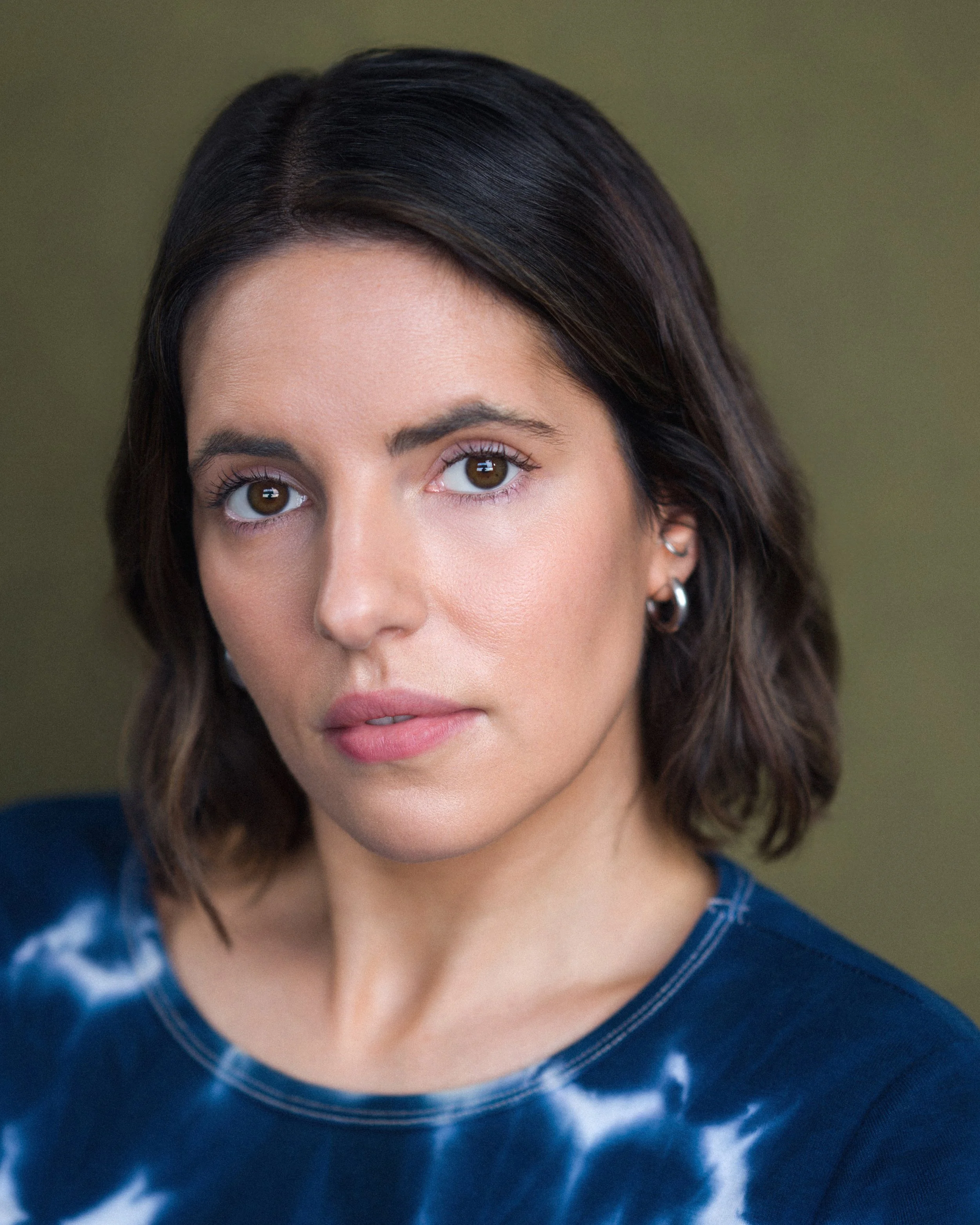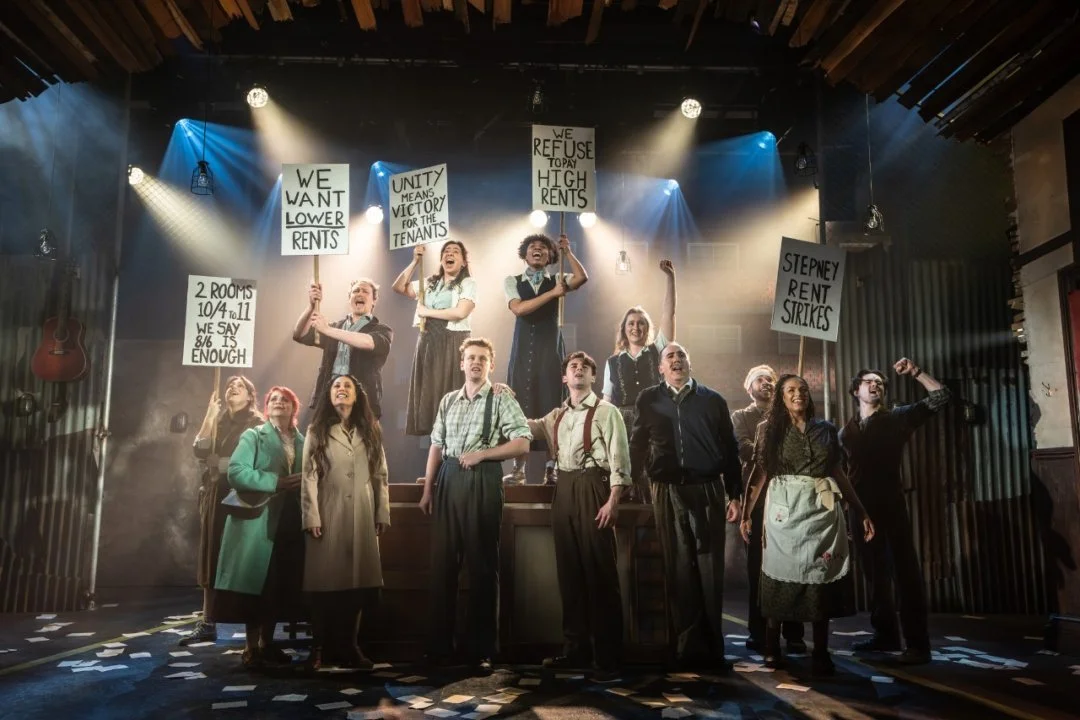Interview with Flossie Waite, Communications and Advocacy Officer for Oily Cart
Flossie Cart is the Communications and Advocacy Officer for Oily Cart, a theatre company that creates sensory theatre for, with and alongside disabled children and their families. Cart is also an Associate Artist with Page One Theatre and previously ran the UK’s first website dedicated to covering theatre for young audiences, Children’s Theatre Reviews. Today she joins Emmie to chat about her work and Oily Cart’s importance in the industry.
You are part of Oily Cart which is an internationally acclaimed company that pioneered sensory theatre 40 years ago. Can you begin by telling us what inspired the work that Oily Cart does?
We’ve travelled great distances from our very first show in 1981: an anarchic, political Punch and Judy puppet show put together by three friends, writer / director Tim Webb, musician / composer Max Reinhardt and designer Claire de Loon. Oily Cart’s early shows were interactive, musical, and multi-sensory, performed for under-5s. It was only a chance invite from a specialist school a few years later that altered the direction of our work, sparking the inspiration for everything we’ve done since.
At this school, Tim, Max and Claire first saw ‘hammocking’ – being rocked and bounced in hammocks- which was hugely popular with students. Discovering the delights of the kinaesthetic sense - the sense of movement – started a whole new way of theatre-making, one that uses up to 33 senses to open up theatre to more people. Since then, our shows have been performed on trampolines and in swimming pools, in hospitals and online, been delivered through the post and even taken audiences up in the air – who knows where we’ll go next!
Your work is primarily sensory theatre-based and it works using all 33 senses, where does most of your work begin its creative process?
Our creative starting point is always a shared point of interest between artists and our audience, disabled children who experience the most barriers to access. We make sure that young people with this lived experience are part of a creative process that is filled with play, and follow their lead to find the most interesting creative directions we can go together. We open things up to include all the senses, being really rigorous about every detail and each moment of our audience’s experience: from the temperature of the air to the texture of the chair cushion. Each one of these could be someone’s creative path into the imaginary world of the show. By thinking about the people who experience the most barriers first, the creative process ripples outwards to make a show that is more accessible for everyone.
How has your work benefited the people that have the chance of seeing it?
Like other theatre companies, Oily Cart works really hard to create experiences that entertain and resonate, to offer space to dream, reflect and connect. The benefit of our work, I think, is that it aims to achieve this creatively in a way that is more accessible to many children and young people.
‘Traditional’ British theatre focuses mainly on language and visuals. It’s a shared experience, but one that often holds specific, fixed expectations around audience behaviour, like sitting quietly, and clapping at certain times, and audience responses.
Sensory theatre, on the other hand, doesn’t just appeal to your brain, but your whole body. After all, many of our most powerful and profound experiences happen when we are in our bodies, not are heads. The sensory strips back to what is most human, which is where we all meet.
Each sensory performance is as much about texture, taste, colour, weight, vibration, temperature and touch as it is about words and visuals. A sensory show provides a deeply communal experience, where different interpretations and responses are celebrated, and given equal value.
There are huge barriers for disabled people, what are some of the biggest challenges that you face as a company?
There are of course physical barriers, like the lack of Changing Places facilities, alongside attitudinal, structural, institutional, and ideological barriers. Something I think a lot about is that if you don’t experience (m)any barriers to engaging with or attending theatre, it can be easy to take for granted - especially living in London, as I do - the number and variety of amazing shows to choose from. The sensory theatre sector, though growing, is still small, and there are nowhere near enough accessible shows made and programmed to meet demand, let alone offer choice. Our vision is that disabled children, young people and their families not only have access to extraordinary shows, but plenty of choice, so that they feel truly considered and welcomed.
Talking of the barriers and considering the fact you’ve been creating work for over 40 years now, do you think it’s harder or easier to access the arts now?
There are many disabled artists and audience members who have been fighting for equal arts access for much longer than me, and would be better placed to give an answer. But speaking from my own personal, fairly privileged, experience, it seems that some things have changed for the better: the sensory theatre sector has grown across the globe, for instance; and access considerations like content warnings and relaxed performances are much more prevalent. But there are still far too many barriers, exacerbated by recent events like Covid and the cost-of-living crisis, both of which disproportionately impact the disabled community. I feel very lucky to work for a company like Oily Cart that works so hard at being accessible, and to live in a place with a vibrant accessible theatre scene. But my ideal would be a world where, for those working in the industry and for audiences, that isn’t unusual, but standard.
You are the Communications and Advocacy Officer for Oily Cart. What does your role involve?
I’m here to share the story of Oily Cart and sensory theatre, and to advocate for equal access to the arts, alongside our audiences. It’s a really juicy, creative role that can look very different day to day, from creating show copy and writing social media posts, to being in rehearsals and having big picture conversations with families about what’s important to them.
You are a disabled and neurodivergent person yourself, what has been fundamental for you personally in being able to do the role you do?
At Oily Cart, I feel like I don’t need to ‘mask’ but can be my full self, because access and wellbeing is such a clear priority. There is an Access and Wellbeing Officer in our team, and processes and structures have been put in place, from Access Audits to an Artist Wellbeing Therapist, to make Oily Cart an accessible working environment. It’s really important to the company that we are constantly listening and learning about access, which in turn creates a culture of openness. This proactive approach not only lifts some of the burden of having to advocate for myself, but also makes me feel like my lived experience is acknowledged and valued.
It’s really important for me personally that the company gets that flexibility is essential for accessibility. My conditions can be dynamic, day by day or over a longer period of time. Recently, for instance, I worked with the Artistic and Executive Directors to adapt my role and working hours to meet my changing needs over the last year, as I returned to work after maternity leave and found a new normal as a disabled parent. I appreciate Oily Cart’s broad understanding of access, that includes caregiving responsibilities.
You are driven by access to the arts for everyone, do you have any examples of anything you have seen over the years where this has been achieved?
There are lots of incredible companies out there who place access at the heart of the creative process and audience experience, like Graeae, Touretteshero, Access All Areas and Daryl & Co. All of these companies are either disabled-led or collaborate with disabled artists: ‘Nothing about us without us’ is, I think, key to creating inclusive work. A really joyful show I saw recently is Zoo Co and Improbable’s show A Perfect Show for Rachel, which does an amazing job of making everyone feel welcome. Learning disabled artist Rachel directs each unique show live on stage, and creative access is woven into every performance. A Perfect Show for Rachel is back again in May / June and I highly, highly recommend getting tickets if you can.
What is it like creating work which supports disabled people and how do you hope it is received from the people who come to see it?
We hope that our performances offer mirrors and windows. Mirrors, for children to have their experiences mirrored back to them, and windows to reveal possibilities they hadn’t yet imagined. Ultimately, we want audiences to feel seen and heard, and to have a brilliant time together.
For anyone who is reading this and wants to pursue the industry as a disabled and neurodivergent person, what advice would you give them?
As your focus for this month will so brilliantly show, there is a large community of disabled and neurodivergent people in the creative industry. Being aware of and connecting with them online, at work and at events has been a gamechanger for me. I am encouraged and reassured that a role in this industry is possible, and that there are lots of other people who understand my perspective and share my values and priorities.
One of the biggest barriers I’ve faced personally over the years is my own attitude. It’s taken a long time to slowly put down some of the prevailing narratives about things like productivity, which in the past meant I pushed through and ignored my needs, to my own detriment. At times, I felt like my body and my brain were just not made for the working world as it currently is, and accepted that as a weakness in myself. Now I understand that it’s society that needs to change, not me. So, my advice would be that even if it feels like everything is telling you to conform and to be productive, remember your inherent value as a human being. It’s okay to rest, it’s okay to ask for what you need and it’s okay to prioritise yourself.
Keep up with the latest from Oily Cart by visiting their website.










